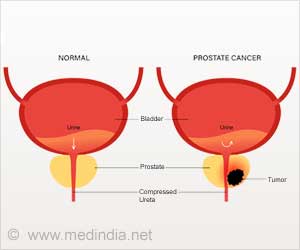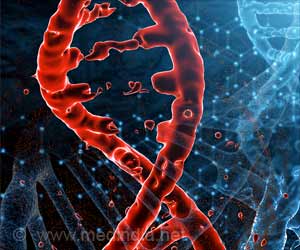New Medication targets NF-κB, a key link between loss of dystrophin and disease progression in Duchenne muscular dystrophy (DMD)

‘Key driver of muscle degeneration and suppression in DMD is activation of the NF-κB, which can be blocked by Edasalonexent.’





"In addition to being well tolerated in pediatric patients with DMD, our Phase 1 data demonstrated that edasalonexent (CAT-1004) inhibited NF-κB. This is important because NF-κB is a key link between the loss of dystrophin and disease progression in DMD. This would mean that edasalonexent has the potential to limit disease progression for all patients affected by DMD, regardless of their underlying mutation," explains Joanne Donovan, MD, PhD, Chief Medical Officer of Catabasis Pharmaceuticals, Inc. (Cambridge, MA, USA).
Edasalonexent is an orally administered small molecule that contains two active substances, salicylic acid and the omega-3 fatty acid docosahexaenoic acid (DHA), which are linked together to produce a unique molecule. Both of these molecules are inhibitors of NF-kB, but edasalonexent inhibits NF-kB much more potently than either of the base molecules alone.
In a previous study, edasalonexent was well tolerated and absorbed in adults and inhibited NF-κB. The goal of the current study, a Phase 1/2 study known as MoveDMD, was to evaluate the effects in children with DMD. In this one-week, open-label, multiple-dose Phase 1 clinical trial, 17 boys (mean age 5.5 years) were administered three sequential ascending doses of edasalonexent (33, 67, and 100 mg/kg/day).
All doses were found to be well tolerated with no serious adverse events, dosing interruptions, dose reductions or discontinuations due to adverse events. Most adverse events were mild and gastrointestinal.
Advertisement
"This shows that with short-term dosing, edasalonexent can directly reduce the levels of elevated NF-κB in circulating DMD mononuclear cells prior to any changes observable in muscles," notes Dr. Donovan.
Advertisement
Edasalonexent can potentially reduce muscle inflammation and degeneration and enhance muscle regeneration. She also suggests that inhibition of NF-κB may have disease-modifying effects.
"The data from the Phase 1 MoveDMD clinical trial reinforce the good tolerability and safety profile of edasalonexent that we have now also observed in the Phase 2 trial and open-label extension," adds Erika Finanger, MD, Associate Professor of Pediatrics, Division of Neurology, School of Medicine at Oregon Health & Science University and principal investigator for both the MoveDMD and PolarisDMD trials.
"I am pleased to continue to evaluate edasalonexent as a potential novel therapy for those affected by Duchenne, and I am excited to participate in the Phase 3 Polaris DMD study."
DMD is the most common genetic neuromuscular disease, affecting one in 3,500-6,000 male births. The disease is characterized by progressive muscle weakness and degeneration with loss of contractibility. It is caused by one of several mutations in the DMD gene.
No matter what the particular mutation, a key driver of muscle degeneration and suppression of muscle regeneration in DMD is chronic activation of the transcription factor NF-κB, which causes loss of dystrophin, a protein which helps keep muscle cells intact.
Source-Eurekalert










